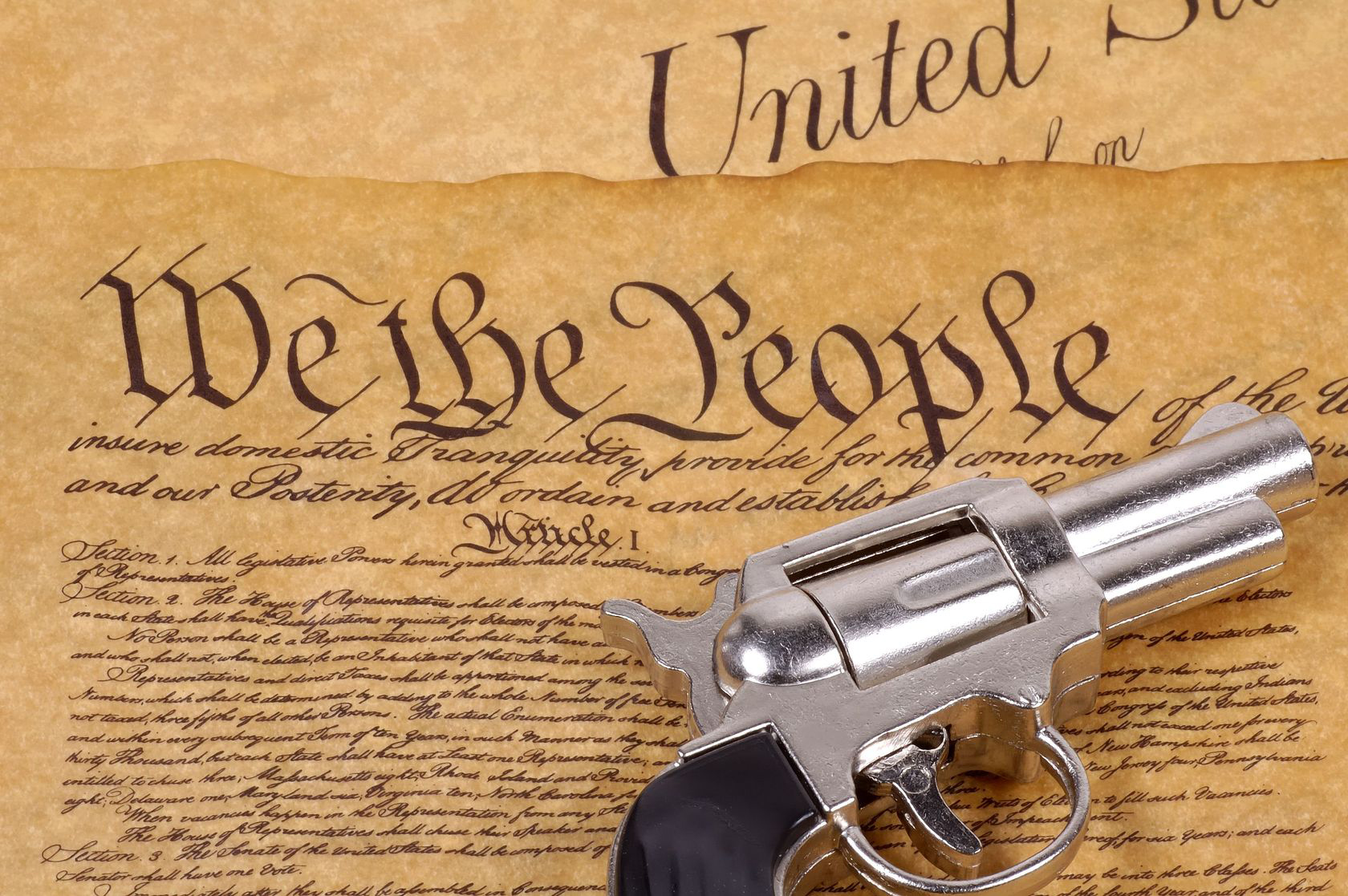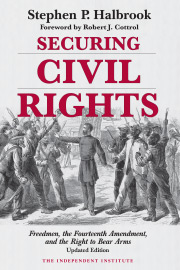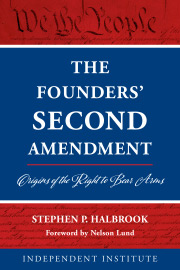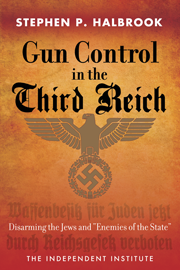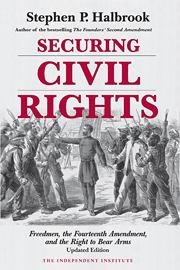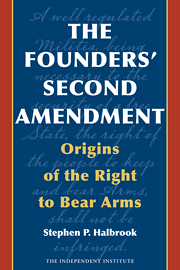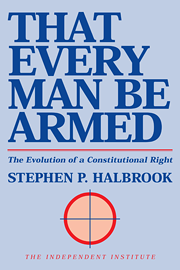“Universal background checks.... Effectiveness depends on ... gun registration....” So says the National Institute of Justice, part of the Obama Justice Department, in a 2013 study. Criminalizing the transfer of firearms between law-abiding citizens—the only ones who would undergo background checks—has nothing to do with preventing violence, but everything to do with registering gun owners.
The Second Amendment provides that “the right of the people to keep and bear arms, shall not be infringed.” Incarcerating persons who fail to register to exercise this constitutional right, to say the least, infringes that right.
The European Union mandated that its members impose central electronic registration on all lawful gun owners. (Attention hackers.) Now, in response to recent terrorist attacks, the EU seeks to ban many types of firearms commonly possessed for sport and self-defense. How easy it will be to confiscate the registered firearms.
The terrorists forgot to register their weapons, so they won’t be turning them in.
As fate would have it, in 2013—the 80th anniversary of Hitler coming to power—Germany was the first to comply with the EU’s diktat. Completely forgotten was Germany’s—rather Europe’— rather regretful experience.
Requiring registration and banning certain firearms was a familiar panacea in the 1930s. In 1931, in Germany’s Weimar Republic, street violence between communist and Nazi thugs prompted the executive branch to decree the registration of firearms. The interior minister warned that the records must not fall into the hands of extremists.
The records fell into the wrong hands in 1933, when Hitler seized power and used them to disarm the Social Democrats and other “enemies of the state.” In 1938 the German police used the records to disarm the Jewish population so none could resist the attacks during Kristallnacht, the Night of the Broken Glass.
Disorder in France in 1935 was the excuse for similar registration. That was just in time for the Nazi invasion in 1940. German soldiers put up posters warning that civilians who failed to surrender their firearms within 24 hours would be shot. With France defeated, the French police had only to consult their own registration records to identify disobedient gun owners and turn them over to the German firing squads. Many were executed while others used their guns in the Resistance.
In the United States, in reaction to organized crime created by Prohibition and to Depression-era gangsterism, the National Firearms Act of 1934 was enacted, requiring registration of narrow classes of firearms such as machineguns. The Department of Justice unsuccessfully tried to talk Congress into also requiring handgun registration. After Pearl Harbor, the gun-control movement vanished as the need to learn to shoot became paramount in defeating the Axis powers.
It was déjà vu in 1968 when bills were proposed in Congress requiring firearm registration. Opponents invoked the Nazi experience. Proponents denied the Nazis used records to disarm enemies. A government study concluded it was “unable to locate references to any German use of registration lists to collect firearms”—it didn’t look very far—although it acknowledged a law imposing the death penalty for a Pole or Jew possessing a firearm. Congress rejected registration.
Now gun-controllers are back with proposals for “universal background checks” and a ban of any firearm arbitrarily labeled an “assault weapon.” Violations would carry long prison sentences.
Meanwhile terrorists murder people in America and Europe in “gun free” zones. Potential victims are to be “protected” by being registered, disarmed, arrested, and imprisoned if they fail to comply.
Europeans are pushing back against the restrictions, but the EU has no Second Amendment. The United States does, however, and its citizens understand the plain words “shall not be infringed.” The purpose of the Constitution is not only to limit government power but also to allow ordinary persons to have a plain statement of their rights so they can protect them.

